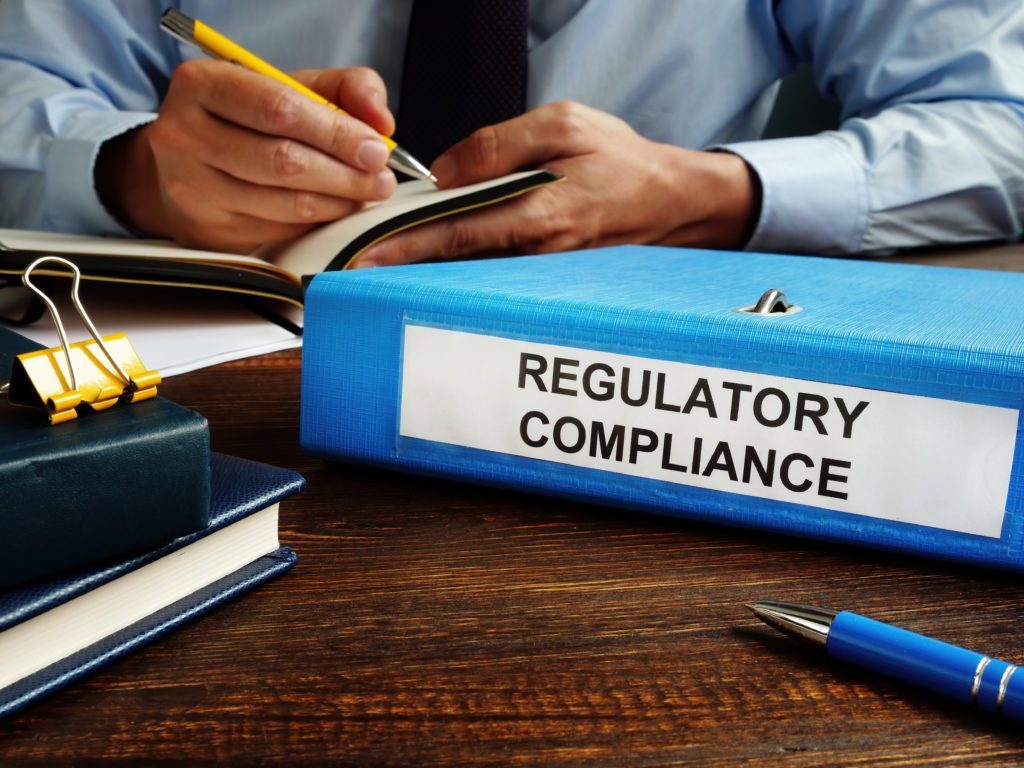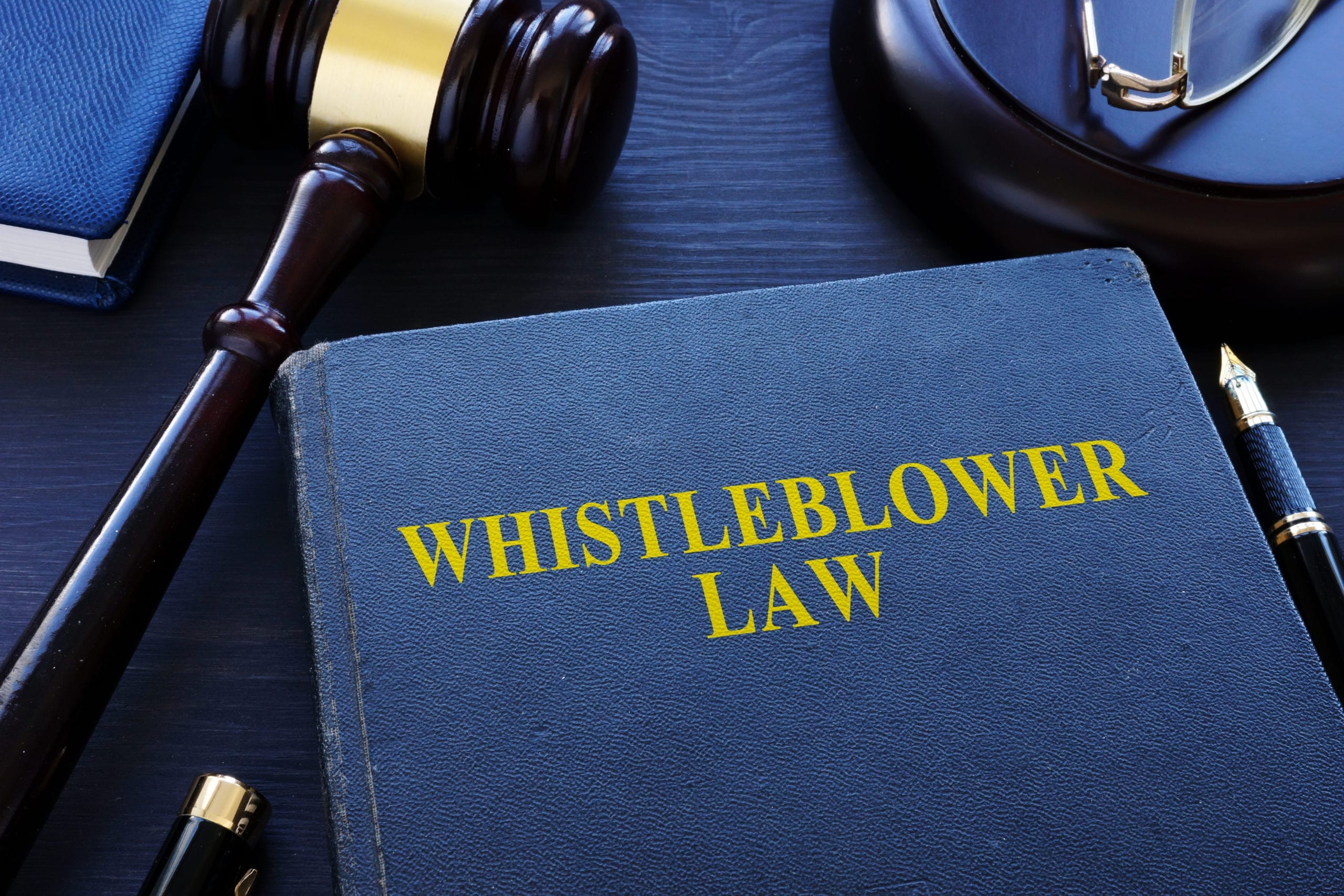BRIAN J GRABER LLC is an Illinois Whistleblower Act lawyer representing employees retaliated against by their employer in violation of the Illinois Whistleblower Act. The Illinois Whistleblower Act (IWA) 740 ILCS 174/1, et seq., provides employees with a broad statutory remedy for wrongful termination or retaliation short of termination such as a suspension or demotion, including constructive discharge.
Under the Illinois Whistleblower Act an employer may not retaliate against an employee for engaging in any of the following protected activities:
- Disclosing information in court, an administrative hearing, or before a legislative commission or committee, or in any proceeding, where the employee has a reasonable cause to believe that the information discloses a violation of an Illinois or federal law, rule, or regulation; or
- Disclosing information to a government or law enforcement agency, where the employee has reasonable cause to believe that the information discloses a violation of an Illinois or federal law, rule, or regulation; or
- Refusing to participate in an activity that would result in a violation of a State or federal law, rule, or regulation.
If you believe your employer retaliated against you in violation of your rights under the Illinois Whistleblower Act contact BRIAN J GRABER LLC, an Illinois Whistleblower Act lawyer, at (312) 291-4648 or by email to schedule a free confidential consultation.
All Employers Are Covered
The Illinois Whistleblower Act applies to all employers with one or more employees in the State of Illinois. The Illinois Whistleblower Act broadly defines the term “employer” as follows:
“Employer” means: an individual, sole proprietorship, partnership, firm, association, and any other entitiy that has one or more employees in this State, including a political subdivision of the State; a unit of local government; a school district, combination of school districts, or governing body of a joint agreement of any type formed by two or more school districts; a community college district, State college or university, or any State agency whose major function is providing educational services; any authority including a department, division, bureau, board, commission, or other agency of these entities; and any person acting within the scope of his or her authority express or implied on behalf of those entities in dealing with its employees.
Illinois Whistleblower Act, (IWA), 740 ILCS 174/5.
This definition of “employer” under the Illinois Whistleblower Act, 740 ILCS 174/5 imposes liability on management employees who engage in retaliation against co-workers on behalf of their employers. The Illinois Whistleblower Act imposes liability on all political subdivisions of the State of Illinois, municipal employers, and county employers.
The Illinois Whistleblower Act broadly defines the term “employee” as follows:
“Employee” means any individual who is employed on a full-time, part-time, or contractual basis by an employer. “Employee” also includes, but is not limited to, a licensed physician who practices his or her profession, in whole or in part, at a hospital, nursing home, clinic, or any medical facility that is a health care facility funded, in whole or in part, by the State.
Illinois Whistleblower Act, (IWA), 740 ILCS 174/5.
Employees who have an employment contract are not at-will employees. Employees wrongfully terminated who are not at-will employees do not have a claim for wrongful termination under the Illinois common law tort of retaliatory discharge. See Taylor v. Bd. of Educ., 381 Ill. Dec. 298, 307-308 (1st Dist. 2014). However, employees employed on a contractual basis are protected under the Illinois Whistleblower Act if their contract is not renewed in retaliation for their protected activity. See Taylor, 381 Ill. Dec. at 312 (holding an assistant principal suffered retaliation in the form of the non-renewal of his employment contract resulting from his report of child abuse).
Persons employed by the State of Illinois have broad protections from retaliation for engaging in protected activity under the Ethics Act Whistleblower Protection provisions. Click here to learn more about State employee whistleblower protections under the Ethics Act.
If you believe that your employer retaliated against you in violation of your rights under the Illinois Whistleblower Act, contact BRIAN J GRABER LLC, an Illinois Whistleblower Act lawyer, at (312) 291-4648 or by email to schedule a free confidential consultation.
Physician’s Privileges
The Illinois Whistleblower Act, (IWA), 740 ILCS 174/5 definition of “employee” was amended to include a licensed physician who practices his or her profession, in whole or in part, at a hospital, nursing home, clinic, or any medical facility that is a health care facility funded, in whole or in part, by the State to protect physician whistleblowers. Before this amendment to the Illinois Whistleblowers Act, physicians who have their privilege to practice medicine revoked at hospitals or nursing homes in retaliation for whistleblowing generally cannot meet the common law definition of “employee” and therefore do not have any Illinois common law claim for the tort of retaliatory discharge. See Oommen v. Glen Health & Home Mgmt., 2020 IL App (1st) 190854 (affirming dismissal of doctor’s common law tort claim of retaliatory discharge for whistleblowing because the doctor failed to submit evidence to create an issue of fact as to employee status). However, a hospital or nursing home that accepts Medicaid payments is covered by the Illinois Whistleblower Act, 740 ILCS 174/5 when they revoke a doctor’s privileges to practice medicine at their facility in retaliation for whistleblowing activity. See Oommen, 2020 IL App (1st) 190854 (Medicaid payments do indeed constitute State funding and doctors practicing at medical facilities receiving such payments are “employees” with standing to sue under the IWA).
If you believe your privileges to practice at a hospital, nursing home, or another medical facility accepting Medicaid were revoked in retaliation for whistleblowing activities in violation of the Illinois Whistleblower Act, contact BRIAN J GRABER LLC, an Illinois Whistleblower Act lawyer, at (312) 291-4648 or by email to schedule a free confidential consultation.
Reporting Violations of Law
Whistleblowing is exposing violations of law. The Illinois Whistleblower Act, (IWA), 740 ILCS 174/5 creates a private cause of action when an employer retaliates against an employee for disclosing information to a government or law enforcement agency, where the employee has reasonable cause to believe that the information discloses a violation of a State or federal law, rule or regulation. See Coffey v. DSW Shoe Warehouse, Inc., 145 F. Supp. 3d 771, 775-776 (N.D. Ill. 2015). However, unlike the common law tort of retaliatory discharge which allows an employee to engage in protected activity by reporting violations of laws internally to his or her employer, the Illinois Whistleblower Act requires the employee to report alleged violations to governmental agencies or law enforcement.
The Illinois Whistleblower Act imposes liability on employers who retaliate against their employees as follows:
An employer may not retaliate against an employee who discloses infromation in a court, an administrative hearing, or before a legislative commission or committee, or in any other proceeding, where the employee has reasonable cause to believe that the infromation discloses a violation of a State or federal law, rule, or regulation.
Illinois Whistleblower Act, (IWA), 740 ILCS 174/15(a).
Under the Illinois Whistleblower Act, (IWA), 740 ILCS 174/15(a) an employee only engages in protected activity if he or she discloses what he or she reasonably believes is a violation of a State or federal law. rule, or regulation in court, at an administrative hearing, a legislature, or some other official governmental proceeding. Therefore, an employee who only reports what he or she reasonably believes is a violation of a State or federal law, rule, or regulation to his or her manager, supervisor, or human resources is not protected under the Illinois Whistleblower Act, 740 ILCS 174/15(a). However, that employee may have a common law claim for the tort of retaliatory discharge for whistleblowing.
The Illinois Whistleblower Act imposes liability on employers who retaliated against their employees who engage in protected activity by disclosing what they reasonably believe to violation of a State or federal law, rule, or regulation to a government agency or law enforcement as follows:
An employer may not retaliate against an employee for disclosing information to a government or law enforcement agency, where the employee has reasonable cause to believe that the information discloses a violation of a State or federal law, rule, or regulation.
Illinois Whistleblower Act, (IWA), 740 ILCS 174/15(b).

Under the Illinois Whistleblower Act, (IWA), 740 ILCS 174/15(b), an employee only engages in protected activity by reporting what he or she has reasonable cause to believe is a violation of a State or federal law, rule, or regulation to a government agency or law enforcement. An employee who only discloses what he or she has reasonable cause to believe is a violation of a State or federal law, rule, or regulation to his or her manager, supervisor, or human resources but does not disclose the alleged violation to a government agency or law enforcement is not protected under the Illinois Whistleblower Act, 740 ILCS 174/15(b) from retaliation. See Riedlinger v. Hudson Respiratory Care, Inc., 478 F. Supp. 2d 1051, 1054-1055 (N.D. Ill. 2007) (holding employee had no right of recovery under the IWA where he revealed information about a suspected violation to his employer and not some governmental or law enforcement agency). However, that employee may have a claim under the Illinois common law tort of retaliatory discharge for whistleblowing.
In Perez v. Staples Contract & Commercial LLC, No. 21-2601 (7th Cir. Apr. 14, 2022) the issue was raised whether the Illinois Whistleblower Act statutory phrase – “a violation of a State or federal law, rule or regulation” – the term “State” means Illinois or whether it could mean some other state like New York. In Perez, an employee claimed he was terminated in retaliation for refusing to participate in the sale of a detergent that violated a New York state environmental regulation. The 7th Circuit Court of Appeals affirmed the district court’s decision that the presumption against extraterritorial effect makes it highly improbable that “State” in those contexts meant “any state in the United States.” See Perez v. Staples Contract & Commercial LLC, No. 21-2601 at *23-24 (7th Cir. Apr. 14, 2022).

Government Employee Whistleblowing
Under the Illinois Whistleblower Act, (IWA), 740 ILCS 174/15(b) an employee employed by a government agency or law enforcement agency may have a cause of action for disclosing suspected unlawful activity to one’s own employer who also happens to be a governmental agency or law enforcement agency. See Brame v. City of North Chicago, 353 Ill. Dec. 458, 460 (2nd Dist. 2011) (holding the police lieutenant’s report of the police chief’s suspected criminal activity to the mayor was protected activity under the IWA).
However, merely telling the alleged government violator that his or her acts are improper does not constitute “disclosing information” under the Whistleblower Act, 740 ILCS 174/15(b). See Sweeney v. City of Decatur, 79 N.E. 3d 184 (Ill. App. Ct. 2017). In Sweeney, the chief of police reported to the city manager that his use of public resources was improper and the court held as follows:
Simply having a conversation with the wrongdoer about the impropriety of his or her actions is not exposing the alleged improper activity, making it known, or reporting the wrongful conduct. The fact that the violator is the employee’s boss does not alter the analysis, as the information is still not disclosed. We hold that 740 ILCS 174/15(b) does not protect an employee who simply notes the impropriety of conduct with the alleged wrongdoer, as that does not constitute disclosure of infromation under the Whistleblower Act.
Sweeney v. City of Decatur, 79 N.E.3d 184 (Ill. App. Ct. 2017).
Therefore, in light of Brame and Sweeney, to gain protection under 740 ILCS 174/15(b) a governmental employee or law enforcement employee should report what he or she has reasonable cause to believe is a violation of a State or federal law, rule, or regulation to a managerial employee or supervisor who has authority to take action against the violator or report to suspected violation to an outside governmental agency or law enforcement agency that has authority to take action against the violator.
Employer Policies Preventing Whistleblowing
The IWA prohibits an employer from enforcing any policy “preventing an employee from disclosing information to a government or law enforcement agency” if the employee reasonably believes that the information discloses a violation of state or federal law. See Coffey v. DSW Shoe Warehouse, Inc., 145 F. Supp. 3d 771, 776 (N.D. Ill. 2015) (granting employee’s motion for summary judgment where employer fired the employee in retaliation for calling the police on suspected shoplifters). Under the Illinois Whistleblower Act the following employer policies are prohibited:
An employer may not make, adopt, or enforce any rule, regulation, or policy preventing an employee from disclosing information to a government or law enforcement agency if the employee has a reasonable cause to believe that the infromation discloses a violation of a State or federal law, rule, or regulation.
Illinois Whistleblower Act, (IWA), 740 ILCS 174/10.
Third-Party Lawbreakers
The Illinois Whistleblower Act applies to third-party lawbreakers. In Coffey v. DSW Shoe Warehouse, Inc., 145 F. Supp. 3d 771, 773 (N.D. Ill. 2015) an assistant store manager was fired in retaliation for calling the police on suspected shoplifters. The court rejected the employer’s argument that the IWA does not apply where the employee discloses a possible violation of the law by a third party, rather than misconduct by her employer. The court held as follows:
. . . nothing in the statutory language or the legislative history suggests that legislators intended to limit the IWA’s protections to only those situtations in which the employee blows the whistle on her employer. . . . The IWA bars retaliation against any person who provides infromation to law enforcment so long as that person has reasonable cause to believe that the infromation discloses a violation.
Coffey v. DSW Shoe Warehouse, Inc., 145 F. Supp. 3d 771, 776-777 (N.D. Ill. 2015).
Employees Must Have A Reasonable Belief A Law Was Violated

The IWA, 740 ILCS 174/15 precludes retaliation against an employee for reporting to law enforcement information that he or she “has a reasonable cause to believe that the information discloses a violation of the law. See Coffey v. DSW Shoe Warehouse, Inc., 145 F. Supp. 3d 771, 778 (N.D. Ill. 2015). What matters is whether the employee’s belief that the law has been violated was reasonable, not whether it was correct. See Coffey, 145 F. Supp. 3d at 778. Therefore, as long as the employee’s belief that a law was violated was reasonable it does not matter whether the belief was incorrect.
Common Government and Law Enforcement Agencies
Aside from dialing 911 to report suspected violations to law enforcement agencies, here is a list of common governmental and law enforcement agencies Illinois employees can disclose what they have reasonable cause to believe are violations of State or federal laws, rules, or regulations:
- Illinois State Police – Division of Criminal Investigation (217) 782-1320
- FBI – Chicago Field Office (312) 421-6700
- Medicare complaints against doctors, hospitals, or providers
- OSHA – filing workplace safety and health complaints (800) 321-6742
- Illinois Department of Public Health – regulates hospitals, nursing homes, and other medical facilities (800) 252-4343
- Illinois Department of Human Services (800) 843-6154
- Illinois Attorney General
- Illinois Office of the Inspector General (866) 814-1113
- Illinois Department of Human Services, Office of the Inspector General (800) 368-1463
- Illinois OSHA
- Chicago Public Schools – Office of the Inspector General
- City of Chicago – Office of the Inspector General
A complete list of all federal and Illinois governmental regulatory and law enforcement agencies is impossible to produce because many different businesses are regulated by many different Illinois and federal government regulatory agencies.
If you believe that your employer retaliated against you in violation of your rights under the Illinois Whistleblower Act, contact BRIAN J GRABER LLC, an Illinois Whistleblower Act lawyer, at (312) 291-4648 or by email to schedule a free confidential consultation.
Burden of Proof
To establish a cause of action under the Illinois Whistleblower Act, (IWA), 740 ILCS 174/15(b), the employee must show:
- An adverse employment action by his or her employer;
- Which was in retaliation;
- For the employee’s disclosure to a government or law enforcement agency;
- of a suspected violation of an Illinois or federal law, rule, or regulation.
See Sweeney v. City of Decatur, 79 N.E.3d 184 (Ill. App. Ct. 2017).
An employee must engage in protected activity under 740 ILCS 174/15(b) by disclosing a suspected violation of Illinois or federal law, rule, or regulation to a government or law enforcement agency before the employer takes adverse action, otherwise, the protected activity could not have caused the adverse action. See Blazek v. ADT Sec., LLC, 2019 U.S. Dist. LEXIS 90158 at *8-9 (N.D. Ill. May 30, 2019).
If you believe that you were retaliated against in violation of your rights under the Illinois Whistleblower Act, contact BRIAN J GRABER LLC, an Illinois Whistleblower Act lawyer, at (312) 291-4648 or by email to schedule a free confidential consultation.

Refusal to Participate Clause
The Illinois Whistleblower Act, (IWA), protects employees from retaliation for refusing to participate in an activity that violates the law as follows:
An employer may not retaliate against an employee for refusing to participate in an activity that would result in a violation of a State or federal law, rule, or regulation, including but not limited to, violations of the Freedom of Information Act.
Illinois Whistleblower Act, (IWA), 740 ILCS 174/20.
Burden of Proof
In order to establish a cause of action under the Illinois Whistleblower Act, 740 ILCS 174/20, the refusal to participate clause, an employee must prove that:
- He/she refused to participate in an activity that would result in a violation of a state or federal law, rule, or regulation; and
- His/her employer retaliated against him/her because of that refusal.
See Sardiga v. Northern Trust Co., 409 Ill. App.3d 56, 61 (1st Dist. 2011).
An employee’s repeated complaints and questions to his supervisors about what he believes to be illegal practices are insufficient to meet the Illinois Whistleblower Act’s requirement of “refusal to participate.” See Sardiga, 409 Ill. App. 3d at 57-58. In Sardiga, the court held as follows:
“Refusing to participate” means exactly what it says: a plaintiff who participates in an activity that would result in a violation of a state or federal law, rule, or regulation cannot claim recourse under the Act. Instead, the plaintiff must actually refuse to participate. . . . Thus “refusing” means refusing; it does not mean “complaining” or “questioning,” as the Sardiga would have us believe.
Sardiga v. Northern Trust Co., 409 Ill.App. 3d 56, 62 (1st Dist. 2011).
If you believe that your employer retaliated against you for refusing to engage in an activity that would result in a violation of a State or federal law, rule, or regulation in violation of your rights under the Illinois Whistleblower Act, 740 ILCS 174/20, contact BRIAN J GRABER, LLC, an Illinois Whistleblower Act lawyer, at (312) 291-4648 or by email to schedule a free confidential consultation. Illinois employees may also have claims under the Illinois common law tort of retaliatory discharge for refusing to engage in activity that violates the law. Click here to learn more.

Remedies for Employer Retaliation
Under the Whistleblower Act, 740 ILCS 174/30 if an employer takes any action in violation of an employee’s rights under 740 ILCS 174/15 or 20, the employee can bring a civil action against the employer for all relief necessary to make the employee whole, including but not limited to the following as appropriate:
- Reinstatement with the same seniority status that the employee had, but for the violation;
- Back pay, with interest; and
- Compensation for any damages sustained as a result of the violation, including litigation costs, expert witness fees, and reasonable attorney’s fees.
If you believe your employer retaliated against you in violation of your rights under the Illinois Whistleblower Act, contact BRIAN J GRABER LLC, an Illinois Whistleblower Act lawyer, at (312) 291-4648 or by email to schedule a free confidential consultation.
